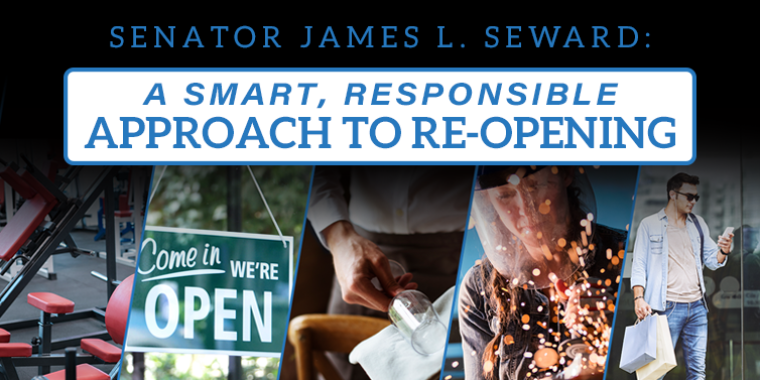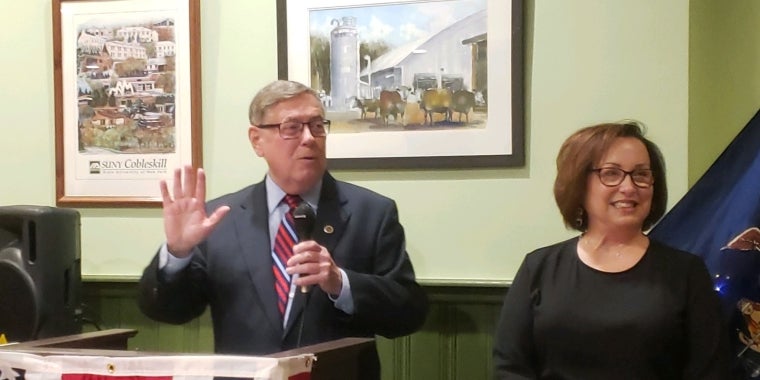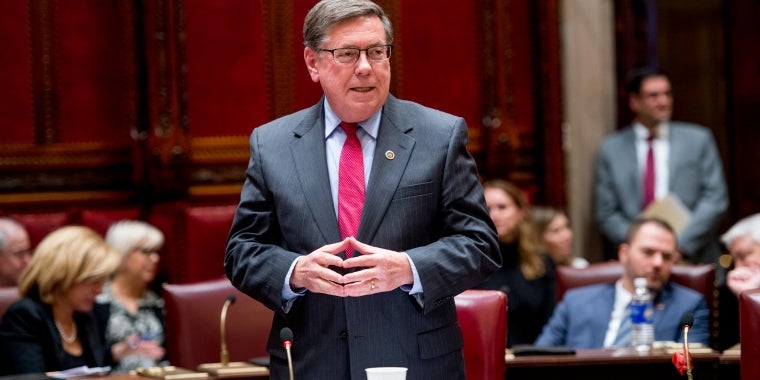
Senate Passes Gas Tax Cap Bill
The New York State Senate today gave final legislative approval to legislation to provide New Yorkers with relief from high gas prices by capping and reducing the sales taxes on gasoline, a plan that originated with the senate's actionin September following thejump in prices attributable to Hurricane Katrina.
The bill would cap the state sales taxes on gas at 8-cents per gallon, effectively freezing the tax at the $2 per gallon rate. The gas tax cap would save New Yorkers as much as $450 million annually at the pump.
"The price of gas has risen so high that families in New York are wondering if they’ll be able to afford to fill up their gas tanks again this month," Senator Seward said. "The price of gas is having a big impact on people’s wallets and on the bottom lines of businesses, and we are acting now to deliver a result that will provide significant savings to motorists. "
"This important legislation is about more than just reducing the price at the pump. It's about cutting taxes. I am pleased that the Senate was successful in reducing gasoline sales taxes. The state will no longer reap windfall profits from the pockets of hardworking taxpayers," Senator James Wright (R-C-I, Watertown), chairman of the Senate Committee on Energy and Telecommunications, said.
The state currently collects an average of 12 cents in sales taxes on a gallon of gas at current prices; this bill would cap the tax at 8 cents per gallon. The 8 cent cap would be reduced proportionately should gas prices fall below $2 per gallon.
Local governments collect between 12 cents and 15 cents per gallon from local sales taxes. The bill allows local governments to opt in and match the state savings at the local level. The cap on the state sales tax on gas would take effect on June 1, 2006. Local governments would have the option of passing a law to cap their local sales tax on gas at a fixed rate at or lower than the 12 to 15 cents per gallon they collect at today’s prices.
The measure requires that service station owners pass along the savings to consumers. The state commissioner of Taxation and Finance, in conjunction with the chair of the State Consumer Protection Board, would be charged with enforcing the cap. There would be a fine of up to $5,000 per incident, per day, for stations that do not pass along the savings.
At least 20 states are debating whether to reduce or freeze their state gas taxes. Governors in North and South Carolina and Maryland are pushing for measures to provide relief from high gas prices.
In addition, the bill (S.7909) would:
> Provide consumers withtax credits for the purchase of home heating oil that contains biodiesel fuel. The credit would be equal to the percentage of biodiesel contained in the fuel, i.e. a 10 cent per gallon credit for heating fuel containing 10 percent biodiesel;
> Create a tax credit for the purchase of energy-efficient residential home heating systems. The credit would be equal to 50 percent of the purchase and installation costs, not to exceed $500; and
> Require the state Thruway Authority and NYSERDA to develop a plan to make alternative fuels, such as ethanol, available at thruway service areas.
The senate and assembly will continue to discuss proposals to encourage the development and use of alternative sources of energy and encourage energy conservation and the purchase of energy-saving products and materials.
The bill was sent to the assembly.
####



